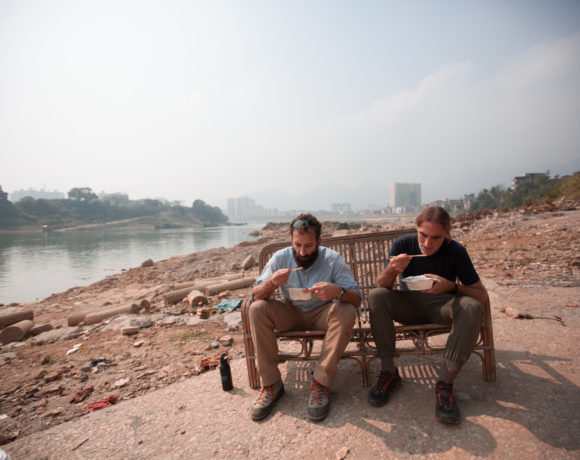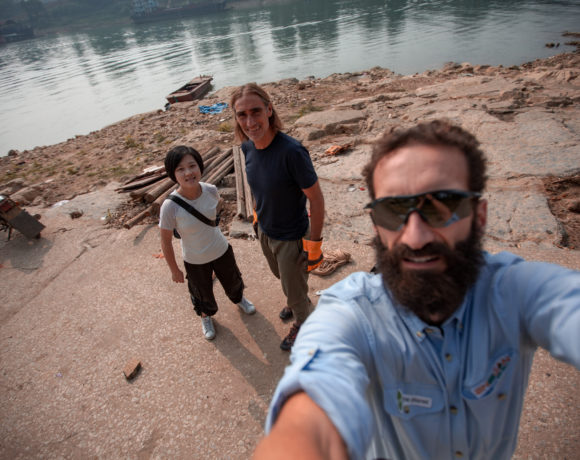The “10 Rivers 1 Ocean” project has arrived in the Pearl rivers
LOGBOOK 1 #PERALRIVER
Over 2,000 kilometers long, it is the third longest river in China. On its delta, in Guangdong Province, the largest megacity in the world arose, home to a population of over 40 million. It comes as no surprise then that it is the seventh most plastic-polluted river in the world, with about 100,000 tons of plastic poured into the China Sea every year. The “10 Rivers 1 Ocean” project has arrived in the Pearl rivers.
Unlike the Ganges, which I traveled alone, this time I decided to travel with a companion, a friend, Folco Terzani. He knows China well, because he lived there for several years. But much has changed since that time, about forty years ago, so much so that for the first few days I saw Folco often distracted, trying to finding the China where he had lived. Not once, over the ten days on the boat, did I hear him cry out, “I remember this!” It would have only taken a sign, a memory to make him happy. But there is a vast chasm between the underdeveloped China, where everything was gray and people dressed like Mao, and today’s China, the world’s factory and the second global economic powerhouse. Unlike him, I had no notions of China, so, for me, it was an easier experience, but still demanding. On second thought, I did have a notion about the Chinese: I had thought they were boring, unfriendly people, but on this trip on the raft from Guiping to Guangdong, I was proved wrong time and time again. Chinese people, a lot of them, are great fun.
About that raft… it was a disaster. Or maybe it wasn’t, maybe it was the best thing that could have happened to us.
It all started with the same plan as in India, collecting some wooden boards found at the side of the road. This was all it took to attract the curiosity of the local people. In the afternoon of the first day, an elderly woman approached us who had been working on her small vegetable garden by the river. She just wanted to show us how to make secure knots, but she became a major resource to help complete building the raft.
Two days later, our creation was ready for the water, but a few minutes after we took off, it started to fall apart. Literally. We hadn’t even left the shore when one of the oars broke in half. Though in other circumstances, I would have gone ahead despite everything, it only took this small sign to make us choose to abandon the idea of navigating on that raft. We had to find a plan B right away. Sometimes it’s hard to choose between keeping on or letting it go. After all, nothing great has ever been accomplished without a dose of obsession and obstinacy. But not this time.
I didn’t know it yet, but leaving that raft and looking for another one was the first in a series of events that made the journey to Guangdong possible.

